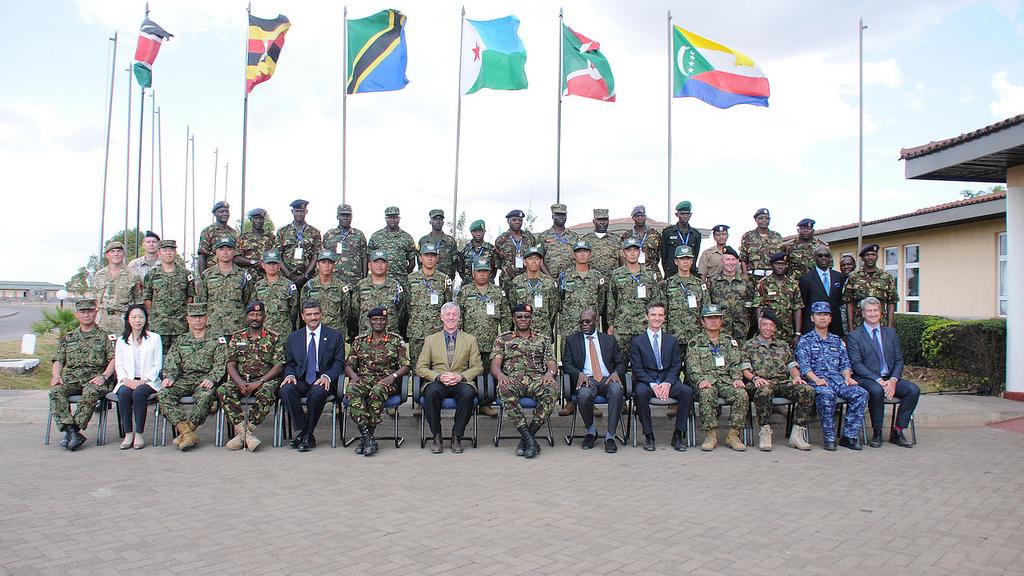The trial training for the Triangular Partnership Project, aimed at enhancing African rapid deployment of engineering capability in peacekeeping, closed in Nairobi on Friday 16 October 2015, after a six-week programme.
Ten military personnel from Kenya, Uganda, Tanzania and Rwanda successfully completed the training and were presented with certificates at the closing ceremony held at the Humanitarian Peace Support School (HPSS) in Embakasi-Nairobi. The Guest of Honour for the event was Mr. Anthony Banbury, the United Nations Assistant Secretary-General for Field Support.
The Guest of Honour said the training would fast track deployment of troops. “The rapid deployment of engineering capabilities to peacekeeping missions in Africa remains an urgent requirement. All professional soldiers know that military operations cannot be successful without logistics and without engineering. All too often in our peacekeeping missions, we have good infantry units but we do not have logistics and engineering capabilities to support them. And this triangular partnership is designed to address that critical shortfall,” noted the Assistant Secretary-General for Field Support.
He added that delays in the deployment of UN troops due to lack of infrastructure could reduce chances for peace and erode trust in the international community, by populations living in stressed and conflict environments. He emphasized, “Rapid deployment of troops into well situated and defended camps can greatly improve conditions on the ground, build confidence, provide stability and ensure that the United Nations is able to create and maintain peace. This is a fundamental need that this project is designed to help meet.” Mr Banbury lauded the contributions of the Governments of Japan and Kenya, the other partners for the training. He further said, “there will be now serious lessons learned study, we can draw the benefits of the pilot project and build on that for the future and we expect much bigger, more expansive effort”.
The just concluded training is a prelude to several full-fledged trainings, that will take place starting 2016, and which will equip and deploy African military engineering units to UN peacekeeping missions.
Speaking on behalf of the Japanese government, the Director of Operations Support Division in the Ministry of Defence in Japan Colonel Kazuo Sakai said the contribution by the Government of Japan was in line with the government’s policy on proactive contribution to international peace and stability. Eleven Japanese instructors trained the soldiers for the entire six weeks.
“ I am convinced that you have all been able to master advanced skills and techniques,” Col. Sakai told the trainees during the passing out ceremony.
Brigadier Jonah Mwangi who represented the Kenya Defence Force at the ceremony, described the event as an important milestone towards the implementation of the rapid deployment concept. “The rapid deployment of engineering capability to United Nations and African Union peacekeeping missions, particularly in Africa requires timely response,” he stated.
The military personnel received instructional lessons on the operation and maintenance of heavy engineering equipment as well as best practices on equipment handling and procurement processes.
The trial training was conducted with additional support from the United Nations Office for Project Services (UNOPS) and the United Nations Support Office for AMISOM (UNSOA), which, was represented at the event by its Director of Mission Support, Amadu Kamara.






